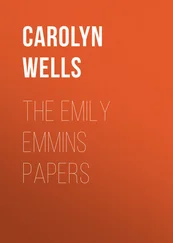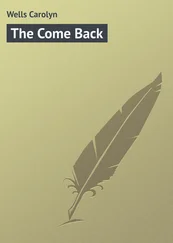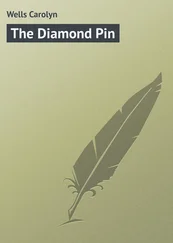Carolyn Wells - The Mark of Cain
Здесь есть возможность читать онлайн «Carolyn Wells - The Mark of Cain» — ознакомительный отрывок электронной книги совершенно бесплатно, а после прочтения отрывка купить полную версию. В некоторых случаях можно слушать аудио, скачать через торрент в формате fb2 и присутствует краткое содержание. Жанр: foreign_prose, на английском языке. Описание произведения, (предисловие) а так же отзывы посетителей доступны на портале библиотеки ЛибКат.
- Название:The Mark of Cain
- Автор:
- Жанр:
- Год:неизвестен
- ISBN:нет данных
- Рейтинг книги:5 / 5. Голосов: 1
-
Избранное:Добавить в избранное
- Отзывы:
-
Ваша оценка:
- 100
- 1
- 2
- 3
- 4
- 5
The Mark of Cain: краткое содержание, описание и аннотация
Предлагаем к чтению аннотацию, описание, краткое содержание или предисловие (зависит от того, что написал сам автор книги «The Mark of Cain»). Если вы не нашли необходимую информацию о книге — напишите в комментариях, мы постараемся отыскать её.
The Mark of Cain — читать онлайн ознакомительный отрывок
Ниже представлен текст книги, разбитый по страницам. Система сохранения места последней прочитанной страницы, позволяет с удобством читать онлайн бесплатно книгу «The Mark of Cain», без необходимости каждый раз заново искать на чём Вы остановились. Поставьте закладку, и сможете в любой момент перейти на страницу, на которой закончили чтение.
Интервал:
Закладка:
Avice was questioned next.
She was a little startled at the suddenness of the call, but responded clearly and with an entirely collected manner to all queries.
“You are Mr. Trowbridge’s niece?”
“Yes, the daughter of his younger brother.”
“You make your home here?”
“Yes.”
“How long have you done so?”
“Since childhood. My parents died before I was ten years old.”
“And you are your uncle’s heiress?”
Judge Hoyt looked a little annoyed at the baldness of this question, but Avice replied, serenely, “To the extent of part of his fortune.”
“Can you tell me any details of the last day of your uncle’s life?”
“Very few. He left home in the morning to go to his business office quite as usual. He generally returns about five o’clock. When he did not arrive at that time, I felt anxious, and later, called Judge Hoyt on the telephone to ask if he had seen or heard of my uncle.”
“Why did you call Judge Hoyt?”
“He was not only my uncle’s lawyer, but his personal friend. They had business to transact at times, and I thought my uncle might possibly have gone to see him. When I learned that Judge Hoyt knew nothing of my uncle’s whereabouts, I asked him to come here, as I felt decidedly uneasy and wanted some one to confer with in whom I felt confidence.”
“Had Mr. Trowbridge manifested any unusual tendencies or habits of late?”
“None whatever. He has been well, happy and quite as usual in every way.”
“Can you form any opinion or have you any suspicion as to who might have committed this crime?”
“Absolutely none. But I have an unflinching determination to find out, at any expense of time, labor or money!”
The girl’s voice rang out in a high, sharp tone, and she clenched her slender hands until the knuckles showed through the white skin.
“We all have that determination, Miss Trowbridge,” said the coroner, a little stiffly, and after a few unimportant questions, Avice was dismissed.
Mrs. Black was called next. This time it was a case of diamond cut diamond. If the coroner was self-important, he was no more so than his witness. If he spoke with pomposity she answered with disdain, and if he was dictatorial she was arrogant.
“You are housekeeper here?” Berg began.
“That is my position, but I was also the fiancée of the late Mr. Trowbridge and should have been his wife next month, had he lived so long.”
“Confine your answers, please, to the questions asked.”
“Your question required two statements in reply.”
“You are a beneficiary under the will of Mr. Trowbridge?”
“I have not yet heard the will read.”
“Do you not know?”
“I know only what Mr. Trowbridge himself told me.”
“And that was?”
“That I should inherit a handsome sum, in addition to this house and its contents.”
“In the event of your being his wife?”
“In the event of his death.”
“Do you know anything further than we have heard of Mr. Trowbridge’s movements on the day that he met his death?”
“I do, – a little.” Eleanor Black bridled and smiled sadly. The jurymen gazed in involuntary admiration, for the features of the beautiful brunette took on an added charm from that slight smile.
“What is it?”
“He telephoned to me about two o’clock, saying he would be home early and we would go out for a little motor ride. He was very fond of motoring, – with me.”
The last two words were added in a lower tone that implied a most romantic attachment between these two.
“He intended to leave his office shortly after noon, then?”
“Possibly it was a little later than two that he called me up. I don’t remember exactly. But he said he would be home by three or four.”
“And when he did not appear were you not alarmed?”
“No, Mr. Trowbridge was so apt to have unexpected business matters turn up, that I merely supposed that was the case, and thought nothing strange of it. Nor was I surprised when he did not appear at six. I felt sure, then, that some important development in his affairs had kept him down town so late.”
“Miss Trowbridge was greatly alarmed?”
“Yes.”
The superb indifference of Eleanor Black’s manner showed clearly that it was a matter of no moment to her if another had been anxious.
“Have you any suspicion as to who could have done this thing?”
The great black eyes of the witness turned slowly toward the coroner. At the remark about Avice she had looked carelessly in another direction.
“I think not,” she said.
“Are you not sure?”
“What do you mean by suspicion?”
“Do you know of anybody who might have killed Mr. Trowbridge?”
“That’s no question!” Her scorn was marked. “Hundreds of people might have killed him.”
“Do you know of any one, then, who you think would be likely to have done so?”
“Likely to? Goodness, no.”
“Who possibly did do so, then?”
“Possibly?”
“Yes, possibly. Is there any one whom you can definitely consider a possible suspect?”
“No; I don’t know of any one.”
The widow was a most provoking witness. She gave an impression of holding something back, yet her face wore an ingenuous expression and she pouted a little, as if unfairly addressed.
“You were at home all day yesterday?” the coroner went on.
“Yes, I expected Mr. Trowbridge, so of course I did not go out.”
“Why, Eleanor,” exclaimed Avice, impulsively, “you went out for an hour soon after luncheon. Don’t you know, I gave you a letter to post?”
“Oh, yes, I forgot that,” and Mrs. Black looked a trifle confused. “I was sure Mr. Trowbridge wouldn’t get here before three, so I ran out for a few moments.”
“Where did you go?”
“Oh, nowhere in particular. I only went to get a little air. Just walking around the adjacent blocks.” She spoke lightly, but her heightened color and quickened breathing betokened an embarrassment which she strove not to show, and, too, she cast a glance at Avice that was anything but friendly.
The coroner seemed unable to think of anything else to ask the witness. He looked at her thoughtfully, and she returned his glance coolly, but he questioned her no further just then.
The butler came next, and his testimony was garbled and incoherent. His emotion frequently overcame him, and he was unable to speak.
At last Judge Hoyt spoke rather sharply to him.
“Brace up, Stryker,” he said. “If you can do a good turn for a master who was always kind to you, don’t spoil your chance by acting like a baby. If your betters can control themselves, surely you can.”
With an effort Stryker stopped shuffling about and a few more sniffs ended his emotional outburst.
“I’m sixty years old,” he said, apologetically, and, apparently, to all present, “and I’ve been in this same employ for fifteen years. It’s natural as to how I should feel bad, ain’t it, now, Mr. Coroner?”
“Yes, my man, but it’s also natural that you should try to control your grief. As Judge Hoyt says, you may render assistance to your late master by your testimony. Now, tell us all you know of Mr. Trowbridge’s callers of late, or any little thing that might come to your notice as a butler. Sometimes you servants have opportunities of observation not known upstairs.”
“That we have, sir,” and Stryker nodded his head thoughtfully. “Yes, that we have. But I know nothing, sir, nothing at all, as has a bearing on the death of the master, – no, sir, not anything.”
“‘Methinks the fellow doth protest too much,’” Pinckney murmured to himself. The reporter sat, with sharpened pencils, but so far he felt he had not much to work on in the way of clues. As to getting a story for his paper, he was more than satisfied. The elements of the fashionable household, a divided interest between the two women, the mysterious death of the millionaire, and now, the uncertain evidence of the old butler, all these would give him enough for a front page spread. But Pinckney wanted more than that. He wanted food for his detective instinct. He wanted clues and evidence of a tangible nature, or at least of an indicative trend. And he had found little so far. Still, he had found some, and he had tucked away in his mind several speeches and looks, that, though not emphasized by the coroner, seemed to him to point somewhere, even if he had no idea where.
Читать дальшеИнтервал:
Закладка:
Похожие книги на «The Mark of Cain»
Представляем Вашему вниманию похожие книги на «The Mark of Cain» списком для выбора. Мы отобрали схожую по названию и смыслу литературу в надежде предоставить читателям больше вариантов отыскать новые, интересные, ещё непрочитанные произведения.
Обсуждение, отзывы о книге «The Mark of Cain» и просто собственные мнения читателей. Оставьте ваши комментарии, напишите, что Вы думаете о произведении, его смысле или главных героях. Укажите что конкретно понравилось, а что нет, и почему Вы так считаете.












